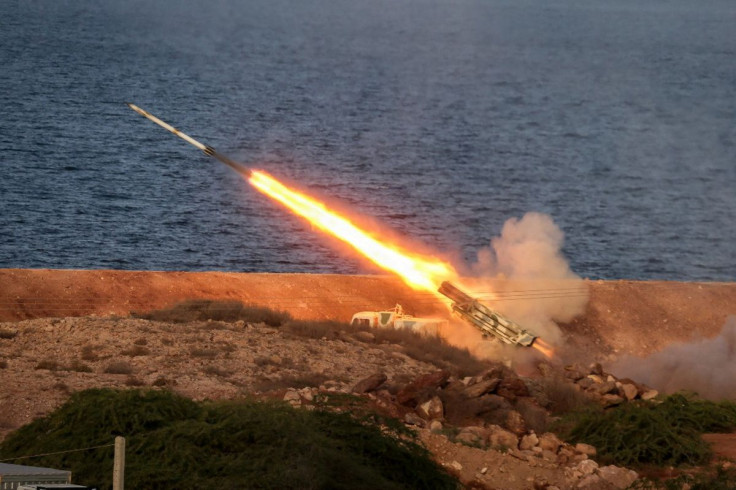Middle East On High Alert As Saudi Arabia Warns US Of Imminent Iranian Attack: Report
KEY POINTS
- Saudi officials reportedly warned that Iran is poised to carry out missile and drone attacks
- Tehran is attempting to distract attention from domestic protests, as per the warning
- Saudi's warning comes amid strained ties between Washington and Riyadh following recent moves on oil production
The U.S. and countries in the Middle East have put their military forces on a state of high alert after Saudi Arabia warned Washington of an imminent Iranian attack on targets in the kingdom and Iraq, The Wall Street Journal (WSJ) said in an exclusive report Tuesday.
Saudi officials shared intelligence with Washington that Iran is poised to carry out attacks on both the kingdom and Erbil, Iraq, to distract attention from domestic protests that have rocked the country since mid-September, according to the outlet.
Protests broke out in several Iranian cities after the death of a 22-year-old-woman, Mahsa Amini, who died while in the custody of the so-called morality police. Calling the protests a foreign plot to destabilize the country, Iran's supreme leader Ayatollah Ali Khamenei accused the U.S., Israel and Saudi Arabia of instigating the demonstrations.
Following the warning, Saudi Arabia and the U.S. as well as several other neighboring states raised the level of alert for their military forces. International Business Times reached out to the U.S. State Department outside of office hours and will update this report based on their comment.
Citing an unnamed spokesperson of the White House National Security Council, the WSJ report said Washington is concerned about the warnings and is ready to respond if Iran carried out an attack.
"We are concerned about the threat picture, and we remain in constant contact through military and intelligence channels with the Saudis," the National Security Council spokesperson said, as per the outlet. "We will not hesitate to act in the defense of our interests and partners in the region."
The latest warning from Saudi Arabia comes amid strained ties between Washington and Riyadh over the kingdom's recent moves on oil production. Despite Washington's pleas to delay the decision until after the midterm elections, the Saudi-led OPEC+ decided to cut oil production last month. The decision angered the administration of Joe Biden, which then threatened Riyadh with "consequences."
However, despite all the clamor, abandoning Riyadh will have serious and pervasive ramifications for Washington's security interests and operations in the Middle East, particularly its efforts to contain Iran and Russian influence in the region.
Amid Tehran authorities' struggle in quelling the domestic protests, the commander of the country's Islamic Revolutionary Guard Corps, Maj. Gen. Hossein Salami, publicly threatened Saudi Arabia in mid-October, warning against its media coverage of the demonstrations.
"I am warning the Saudi regime: Be careful of your behavior and control these outlets or the smoke will blow in your face." Salami said. "We give you the final word because you are interfering in our internal affairs with these media. We told you, be careful."
Also blaming Iranian Kurdish separatist groups for instigating protests that erupted in Iran, Tehran carried out one of its largest and deadliest bombardments in recent years on Kurdish areas in northern Iraq in late September, firing more than 40 ballistic missiles and armed drones and killing more than 13 people. Tehran had carried out similar attacks in the past.
Meanwhile, Iran-backed rebels have also carried out attacks on military bases and critical infrastructure in Saudi Arabia, the UAE and Iraq, and ships in the Gulf.
Following the signing of the Abraham Accords, Israel and its new Arab allies have been seeking to set up a joint air defense system that is now taking shape. The UAE has reportedly deployed an Israeli-made Barak aerial defense system against Iranian missiles and drones.

© Copyright IBTimes 2024. All rights reserved.






















